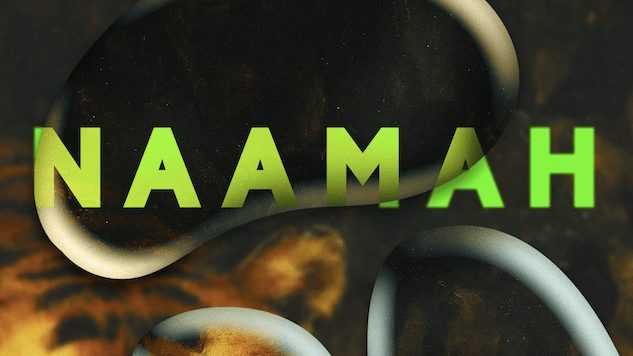
In many biblical stories, women live at the periphery. They are wives or daughters prized for their faith, brought along on men’s adventures or punished as men deserve. This, of course, is a narrow reading.
Today, the women of the Bible are occasionally celebrated for what their perspectives can add to interpretations of Christianity. And in her debut novel, Naamah, Sarah Blake brings Noah’s titular wife to life, imagining how a woman would experience the loss and reconstruction of the world after God destroys it in an apocalyptic flood.
 The novel picks up six months after the flood, leaving Naamah’s family and the animals on their ark (which God instructed Noah to build) as the only survivors. Naamah’s getting restless, and she designs a system that will allow her to swim in the barely receding flood waters to allay her boredom. Her daily swims, however, bring her in contact with the world of the dead, supernatural beings, visions of the future she’s helping to create and even God’s voice in the body of an Egyptian vulture. But Naamah’s loved ones struggle with her inconsistent physical and emotional presence—until the waters begin to recede and the world they are tasked with populating reappears.
The novel picks up six months after the flood, leaving Naamah’s family and the animals on their ark (which God instructed Noah to build) as the only survivors. Naamah’s getting restless, and she designs a system that will allow her to swim in the barely receding flood waters to allay her boredom. Her daily swims, however, bring her in contact with the world of the dead, supernatural beings, visions of the future she’s helping to create and even God’s voice in the body of an Egyptian vulture. But Naamah’s loved ones struggle with her inconsistent physical and emotional presence—until the waters begin to recede and the world they are tasked with populating reappears.
Blake’s Naamah loves her children, feels affection for her daughters-in-law and has a deep intimacy with Noah. But the love of her adult life is Bethel, a woman with whom she had an affair and who died in the flood. In a religious novel devoid of prayer, Naamah’s physical intimacy with other women, herself and her husband becomes the closest thing to a ritual in the narrative.
Naamah’s bisexuality also draws her to angels, spirits and one of her sons’ wives. That her communion with a supernatural realm is shaded by sex—and the messy emotions that come with it—tethers her spirituality and faith to something tangible, making Noah’s experiences with God seem obscured and almost unreal.
Noah isn’t the only man who becomes a peripheral character—a remarkable feat given the proximity within which all the characters are moving and living. Naamah’s sons Japheth, Shem and Ham are also less dynamic than their wives, Adata, Neela and Sadie. Noah’s faith in his work and his sons’ lack of questions about their task pale in comparison to the women’s worries, wants and fears. It’s a sly commentary that rings true; while Noah was the one to build the ark, it’s Naamah who knows how to keep the ark’s animals and people alive.
The men are celebrated for centuries, while the women—who ask the questions and test the limits that allow the new world to thrive—are forgotten. For Naamah, those questions are shaped by the loss during the flood. Her belief in God is molded by her understanding of His capacity to inflict pain, and rather than fear Him or revere Him as her family does, she rages.
The narrative’s thread is sometimes lost when Naamah delivers quippy dialogue while moving between reality and dreams—and with it, the urgency to Naamah’s story. The rambling effect this can have is one of the book’s most significant shortcomings, yet these passages are worth sticking through. Blake ultimately succeeds in making this woman of antiquity feel of our times, offering no easy answers to the many questions Naamah poses.
By highlighting Naamah and her struggles, the story of the ark becomes more convoluted. No longer is it a story about a righteous man chosen by God to do a job, which he does well. Instead, it’s a story about the many who died to make a new world, about the messiness that goes into taking care of animals, about faith in a future one can build. Blake turns this biblical tale on its head, making it more challenging and moving in the process.
Bridey Heing is a freelance writer based in Washington, DC. More of her work can be found here.